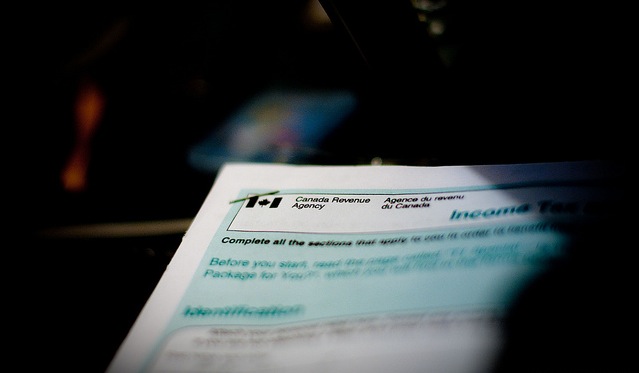Please support our coverage of democratic movements and become a supporting member of rabble.ca.
For years, most pundits have concluded that any politician proposing higher taxes must be either brave or suicidal. These days, however, a growing number of leaders, across the spectrum, are willing to do precisely that. And instead of self-destruction, they may just be showing canny foresight.
In Ontario, Premier Kathleen Wynne has sparked a provincial dialogue on how to pay for urban public transit — including new taxes and fees. Manitoba’s governing New Democrats plan to boost the sales tax by a point, with money targeted to new flood-prevention infrastructure. B.C.’s Liberals campaigned on a platform containing not one but two tax hikes: one on corporations and one on individuals earning more than $150,000. They won a surprising victory against the B.C. NDP (which also proposed higher taxes). Quebec’s PQ government is boosting income taxes for those who earn more than $100,000.
Suicidal? Polls have put public support for some new taxes — especially those targeted at corporations and the wealthy — near 80 per cent.
The federal Conservatives have been the most skeptical of this trend. “I do not believe in tax increases,” was Finance Minister Jim Flaherty’s blunt assessment. That is surely a rash statement for any finance minister. Even if Canada went to war? Even if we faced a deadly epidemic? Even if it saved us money in the future? Rob Ford, the mayor of Canada’s most congested city, believes the same.
Indeed, part of the problem is a political culture that became addicted to promises of pain-free tax cuts, thanks to the budget room generated in the more expansionary 2000s. From the turn of the century until 2011, revenues received by all levels of government in Canada declined by almost 6 percentage points of GDP: from 43.2 per cent to just 37.5 per cent. That represents forgone revenue of more than $100-billion — enough to pay off all deficits in Canada, and much more. According to the Organization for Economic Co-operation and Development, Canada’s tax cuts over this period were far larger than those undertaken by any other major industrial country.
Last year, however, Canada’s tax take began to edge back up. And the OECD expects that trend to continue. The key motive is not to pay off the deficit — for Ottawa and most provinces, current deficits are nothing to lose sleep over. The real pressure is to pay for new things that Canadians want and need from their governments — like transit, repairs to infrastructure and targeted new programs (such as child care).
And that is as it should be. After all, this is the whole point of taxes: to pay for stuff we need.
Railing against taxes used to score easy political points for conservatives and populists. However, there is now a growing list of reasons to believe that higher taxes — and the public projects that they fund — will be highly beneficial for Canada’s economy. Here’s why:
Growth: Our economy currently lacks an engine. Consumers are maxed out, exports are stalled and corporations are sitting on cash instead of investing it. In that context, raising taxes and boosting government spending accordingly will clearly expand GDP and incomes. Economists call this effect the “balanced budget multiplier.”
Infrastructure: Productivity and incomes, even in the private sector, are increasingly restrained by lousy infrastructure, especially transportation infrastructure. Taxes that pay for overdue fixes will generate a significant macroeconomic return, on top of the jobs created by the construction.
Equality: Before government enters the picture, the richest fifth of Canadians make 54 times as much as the poorest fifth — a shocking and widening gap. After taxes (and including government income supplements), that ratio falls to nine times. If we include the value of the public services taxes pay for, it’s five to one.
Believe it or not, higher taxes can even be good for your wallet. The Globe and Mail’s personal finance columnist Rob Carrick recently showed how higher taxes can actually boost disposable income in the long run, by financing necessary infrastructure investments that get more expensive the longer they are deferred. Similarly, the Canadian Centre for Policy Alternatives (where I am a board member) published research last month by economist Hugh Mackenzie showing that lower- and middle-income Canadians would financially benefit from new transit initiatives, even if funded through higher sales taxes. Why? Because they receive a disproportionate benefit from the resulting transit services.
In economics, the anti-tax sentiment of recent years has proven to be short-sighted and wasteful. And finally, tax rage may be becoming an albatross in politics, too.
Jim Stanford is an economist with the Canadian Auto Workers union. This article was first published in the Globe and Mail.
Photo: kardboard604/flickr



